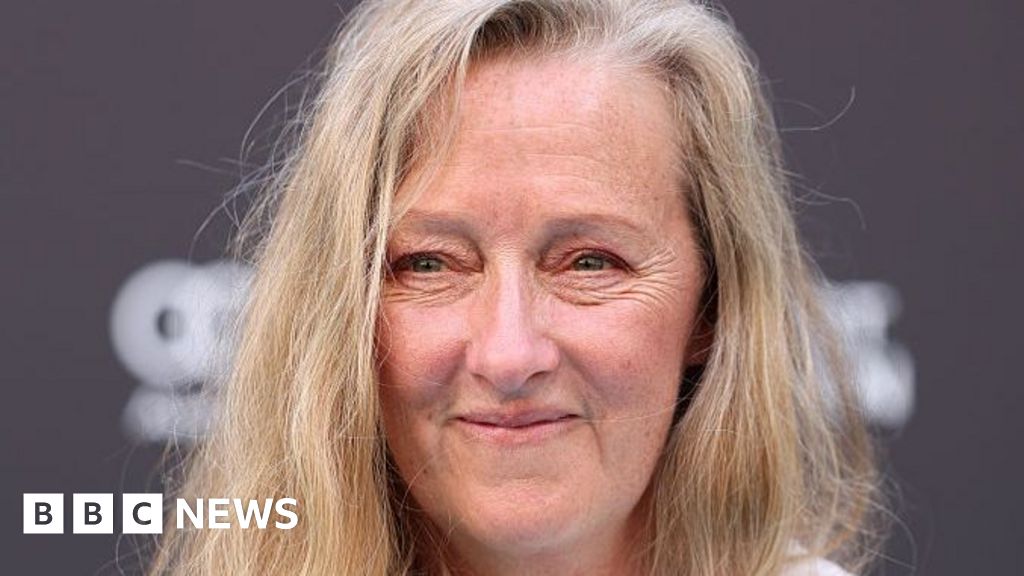'Trusting The Salt Path author was our biggest mistake', family says

'Trusting The Salt Path Author Was Our Biggest Mistake,' Family Claims
A family from North Wales alleges that Raynor Winn, author of the bestselling book "The Salt Path" and its sequels, stole tens of thousands of pounds from their business in the early 2000s. Ros Hemmings and her daughter, Debbie Adams, claim Winn, who worked as a bookkeeper for their property business, misappropriated approximately £64,000. The allegations resurface following an investigation by The Observer newspaper, which raised questions about the accuracy of Winn's autobiographical narrative in "The Salt Path." Winn has refuted the claims as "highly misleading" and disputes many of the details presented.
Allegations of Misappropriation
The Hemmings family's accusations center around Winn's employment at their property business in Pwllheli, Gwynedd. Ros Hemmings, 74, stated that after Winn was hired, the business's financial situation deteriorated rapidly. Initially, they attributed the issues to her late husband Martin Hemmings's lax billing practices. However, their daughter Debbie Adams, now 46, recalls a distressed phone call from her father, revealing his suspicions about missing funds.
"He said: 'I just don't know what's gone wrong, I'm working every hour God gives me and there's no money,'" Adams recounted. "About five days after that first call he rings up and goes, she [Winn] has been nicking money."
The family claims that a meeting with their bank manager revealed between £6,000 and £9,000 was unaccounted for. They allege that Winn subsequently visited their home, offering a cheque for £9,000 and requesting that they drop the matter. While Martin Hemmings accepted the payment on the advice of the police, the family says a subsequent review of their financial records revealed a total loss of approximately £64,000.
Legal Settlement and Non-Disclosure
According to the Hemmings family, they later received a letter from a London solicitor offering to repay the outstanding amount, along with legal fees, totaling around £90,000. The offer was contingent on an agreement not to pursue criminal charges, which Martin Hemmings ultimately signed. Ros Hemmings explained that her husband prioritized avoiding a criminal prosecution against Winn, considering her young children and the family's precarious financial situation at the time.
Speaking to BBC Wales, Ros Hemmings stated, "The mistake was that we ever employed her, and the biggest mistake my husband made, because obviously I'd recommended her in a way, was that he trusted her."
Raynor Winn's Response
In a statement released following The Observer article, Winn acknowledged making "mistakes" earlier in her career and expressed regret for any errors during her employment with the Hemmings family. She stated that the matter was settled on a "non-admissions basis" due to a lack of evidence to support her version of events. Winn maintained that Martin Hemmings was equally eager to reach a private resolution.
Winn's statement also addressed the narrative presented in "The Salt Path," asserting that the book focuses on a specific period in her life after losing her home and becoming homeless, rather than providing a comprehensive account of every event.
Impact on "The Salt Path" and its Reception
"The Salt Path," published in 2018, chronicles Winn and her husband Moth's journey along the South West Coast Path after losing their home due to a failed business venture. The book resonated with readers, selling over two million copies and inspiring a film adaptation starring Gillian Anderson and Jason Isaacs. The recent allegations, however, have cast a shadow over the book's reception and raised questions about the veracity of Winn's narrative.
Expert Perspective: The Ethics of Memoir
Dr. Eleanor Rycroft, a literary scholar specializing in autobiographical narratives at the University of Manchester, commented on the ethical considerations surrounding memoirs. "Memoirs often blend personal experience with narrative license," she explains. "While strict factual accuracy is not always the primary goal, authors have a responsibility to be transparent about any alterations or omissions, especially when portraying events that impact others. The current allegations raise important questions about the extent to which Winn's narrative choices may have misrepresented or obscured the experiences of the Hemmings family."
Historical Context: Truth and Fiction in Autobiography
The debate surrounding the blurring of lines between truth and fiction in autobiographical works is not new. Throughout history, autobiographers have grappled with the challenge of reconstructing the past and shaping their personal narratives. From Jean-Jacques Rousseau's Confessions to more contemporary works, authors have employed various techniques to create compelling and emotionally resonant accounts of their lives. However, the ethical implications of these choices remain a subject of ongoing discussion, particularly when the narratives involve potentially sensitive or controversial events.
Family's Motivation for Speaking Out
Ros Hemmings stated that she decided to speak out now to give "a voice" to her late husband, who she believes was deeply affected by the experience. "I can't forgive her for sort of destroying my husband's confidence in people, because it did," she said. Debbie Adams echoed her mother's sentiments, expressing a desire for the truth to be told.
The Hemmings family acknowledges that they lack documentary evidence to fully substantiate their claims, citing the passage of time and the circumstances surrounding the initial settlement. However, they maintain that their solicitor at the time, Michael Strain, can corroborate their account of events, as he did in The Observer's investigation.
North Wales Police declined to comment on the matter. Winn's spokesperson referred BBC News to her earlier statement and expressed gratitude for the support she has received from readers.
Originally sourced from: BBC Entertainment
